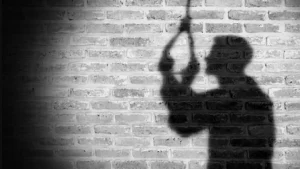Latest research points out that the children who witness domestic violence show more anxiety, depression, anger, low self esteem plus temperament problems compared to those who do not witness violence at home. Here are some of the emotional problems that such children may demonstrate:
- Shy in expressing themselves
- Fearful of being deserted or left behind
- Not interested in taking any responsibility or initiative
- Have low self-confidence and self-respect
- Depression and feelings of helplessness
- Anger
- Inclined to get possessive because of insecurity
You would understand that a child who witnesses violence at home frequently and is continuously exposed to detestable language has two options. One is to surrender to the ongoing fear and seek refuge through crying and depression. The other is to rebel against the circumstances by being aggressive and hostile, both of which are unhealthy for any child and for the society at large.
Behavioral Effects
A man’s behavior is only a representation of his emotional state. If you are emotionally upset, it will surely reflect in your behavior. Surely, a child watches his parents and learns to behave accordingly. If the child is surrounded by people who are violent, rude and inconsiderate of his requirements, the child starts considering that to be the right way of doing things. If a child gets scolded by parents for crying or doesn’t get a hug from them during difficult times, he would obviously learn how to remain indifferent. Here are some behavioral disorders that children from violent households can possibly display:
- Refusing to go to school or doing homework
- Pulling out from tricky circumstances
- Reduced intellectual competency
- Responding to threats by physical or verbal hostility
- Out of control behavior, becoming indifferent to warnings and threats
- Bedwetting, excessive crying and nightmares
- Rigid defenses, used to telling lies to get away from troubles and confrontations
- Excessive attention seeking
- Manipulation, mood swings
- Care taking; acting as a substitute for parent
- Reliance on others
On carefully observing the above mentioned points, you would realize that there are two awfully different behavioral patterns as shown by children. Some may learn to behave like a parental figure while others may become pathetically possessive of someone, usually the mother. They reaction to domestic volatility varies, depending on its nature and frequency.
Social Effects
Children witnessing domestic violence are expected to lack social competence because of the emotional or physical damage caused to them at a young age. Invariably it is found that such children find it difficult to be accepted socially, probably because of emotional troubles like low self confidence and feeling of insecurity. Even on getting social acceptance, the child may employ unhealthy practices like manipulation, lying and stealing just to make a good impression on others. Here are the behavioral patterns of children experiencing domestic violence:
- Remaining isolated from friends and relatives
- Turbulent relationships
- Trouble in trusting, particularly adults
- Poor anger management and problem solving skills
- Excessive social involvement to avoid home
- Passivity with peers or bullying
- Engaged in exploitative relationships as perpetrator or victim



